Speech and voice impairments are common among those living with Parkinson’s. As many as 90% of people with Parkinson’s experience difficulties such as “hypophonia” (soft speech) or a more monotone, raspy or breathy voice (Duffy, 2005). Speech can become less intelligible and can make communication difficult, especially if paired with decreased facial expressions (facial masking). It comes as no surprise that speech and voice impairments can impact quality of life.
In this episode, Davis Phinney and his daughter Kelsey practice vocal exercises, and Davis sings a few classic rock songs. You’ll notice how Davis’s voice gets louder and clearer over the course of the session. Practice singing every day and you and your loved ones will notice changes in the quality of your voice, too.
In this episode, Davis sings:
- 8 Days a Week by The Beatles
- Take it Easy by the Eagles
- Don’t Stop Believin’ by Journey
Notes
- Your voice is a muscle; the stronger your vocal muscles are, the better your voice is
- Singing is a great warm-up if you know you’re going to be interacting with others
- Singing also helps with facial masking
- Ensuring you maintain a good posture will help with your breathing and ability to sing
- Davis uses a device called an EMST (Expiratory muscle strength training) that helps him with his breathing, coughing, and swallowing
- When you do the exercises, remember to relax and resist the temptation to try “hard”
- Start with basic ohs, ahs, and ees. Hold them for as long as you’re able to maintain the sound
- Keep your mouth open as you do each one
- Do a range of la la la la la la la la las
- Then, pick your favorite songs and sing as long as it feels good and fun to you (practice singing flat and expressionless and then add in movement and expressions and notice how it helps you project more loudly)
- When you’re finished, end with some fun rubber ducky motorboat noises
CONCEPTS MENTIONED IN THIS PODCAST & FURTHER READING
- Amplify Your Voice: How to Find a Speech-Language Pathologist for Parkinson’s
- How Music Therapy Can Help You Live Well with Parkinson’s
- LSVT Big & Loud
- Strategies for Addressing Speech & Language Challenges in Parkinson’s
- Closing the Gap for Voice Impairment in Parkinson’s
- I Have Parkinson’s and am Experiencing X, Who Should I See?
- Parkinson’s Speech Therapy: How to Chat with Confidence
- Expiratory Muscle Strength Training (EMST) for Parkinson’s Disease
- EMST 150™
- John Dean from Triad Health AI
- Rachel Newson, private voice instructor in Boulder, CO
- Parkinson’s Voice Project – Free sessions on the second Tuesday of each month on how Parkinson’s affects speech, swallowing, and cognition.
- SpeechVive
- Kathleen Donohue, SLP: Why Do I Need a Speech Therapist?
Thanks for Listening!
To share your thoughts:
- Leave a note in the comment section below.
- Ask a question by emailing us here.
- Share this show on Facebook.
To help out the show:
- Leave an honest review on iTunes. Your ratings and reviews really help, and we read each one.
- Subscribe on iTunes.
Listen & Subscribe
Apple Podcasts | Stitcher | SoundCloud | Google Podcasts
*The Second Season of the Parkinson’s Podcast is made possible through generous support in honor of Dr. Margaret Hilgartner.





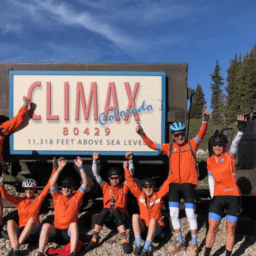



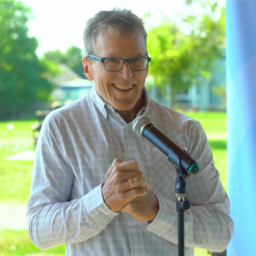

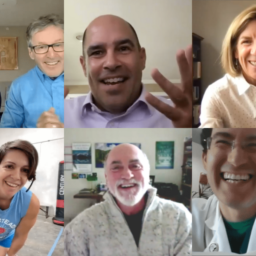

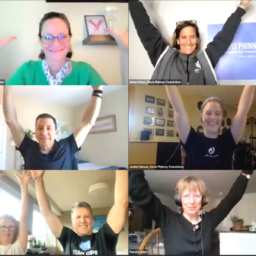
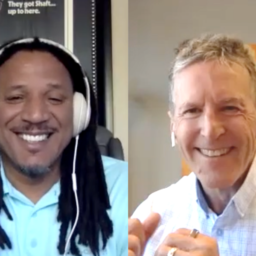


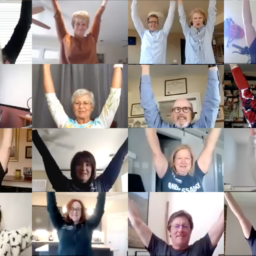
Thanks, that was fun! Wish I had a daughter to sing with. Bless you!
Thanks. I loved your singing together so much. I’m sharing this with my boxers. You are so inspiring.
Thank you for listening, Barbara!